How to keep squirrels away from bird feeders – 5 must-try tips from the experts
Stop these critters stealing your feathered friends' food with these simple ideas

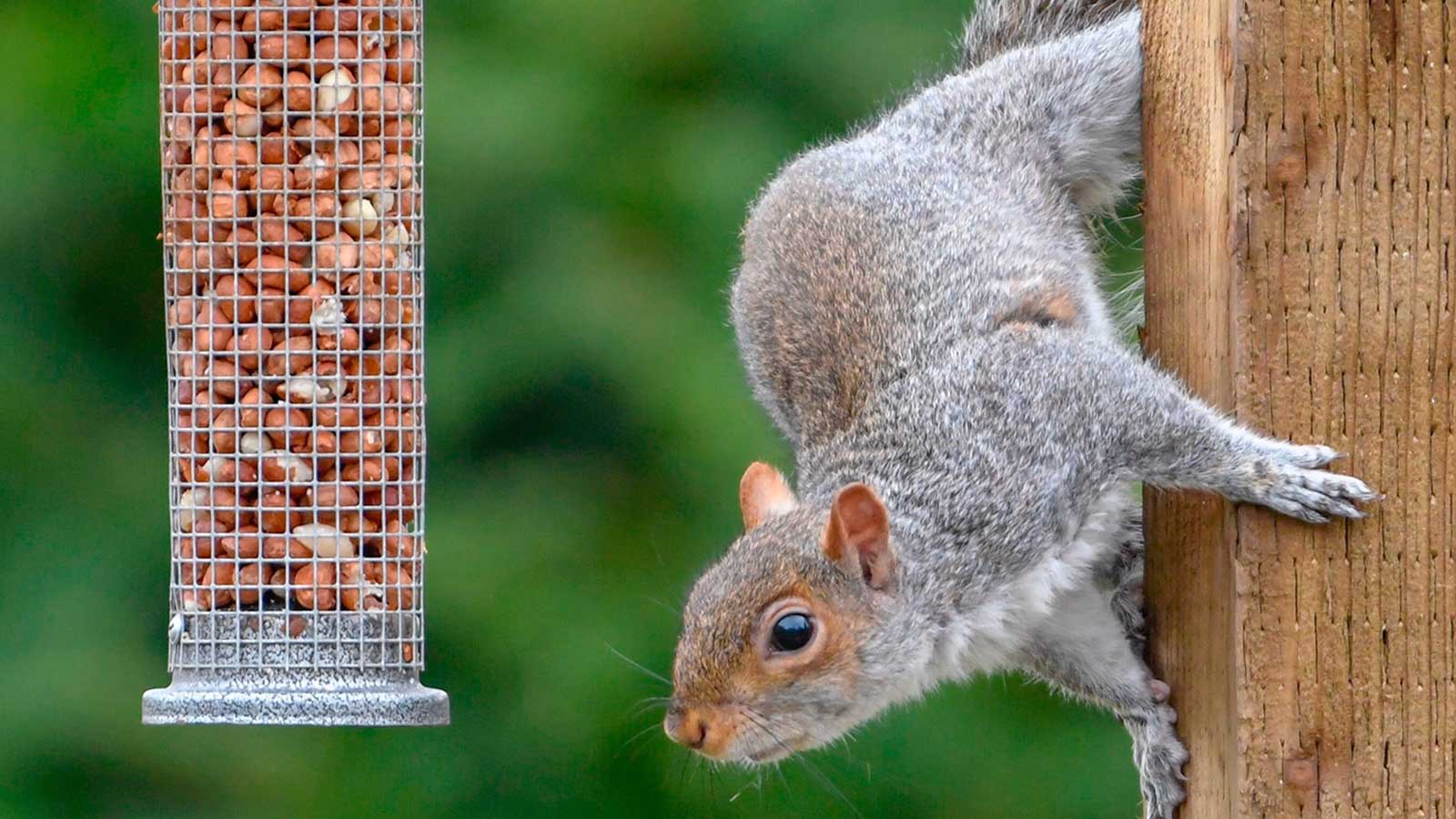
Design expertise in your inbox – from inspiring decorating ideas and beautiful celebrity homes to practical gardening advice and shopping round-ups.
You are now subscribed
Your newsletter sign-up was successful
Want to add more newsletters?

Twice a week
Homes&Gardens
The ultimate interior design resource from the world's leading experts - discover inspiring decorating ideas, color scheming know-how, garden inspiration and shopping expertise.

Once a week
In The Loop from Next In Design
Members of the Next in Design Circle will receive In the Loop, our weekly email filled with trade news, names to know and spotlight moments. Together we’re building a brighter design future.

Twice a week
Cucina
Whether you’re passionate about hosting exquisite dinners, experimenting with culinary trends, or perfecting your kitchen's design with timeless elegance and innovative functionality, this newsletter is here to inspire
Keeping squirrels away from bird feeders can seem like a tricky task. These furry critters are known to perform all sorts of acrobatics to steal a banquet of nuts and seeds, leaving less for your feathered visitors and, often, a mess in their wake.
But, it would be a shame to allow the pilfering nature of squirrels to deter you from putting out bird food altogether. Providing sustenance, particularly in colder weather, is a great way to help birds survive. Plus, birds bring color, life, and soothing sounds to an outdoor space, and are a joy to watch as they flit to and fro.
Luckily, there are a few simple tips you can try to get rid of squirrels and help with squirrel-proofing a home, which will allow birds to eat in peace.
Keep squirrels off your backyard bird feeder with these 5 top tips

Gulshan is a biotechnologist and the founder and CEO of Pest Keen, an online resource dedicated to keeping homes free of pests. She uses her education in biotech to help people make intelligent choices about the products they use in their homes.
We've rounded up five ways to keep squirrels off your bird feeder, all of which are natural and won't cause harm.
'It's important to remember that squirrels are wild animals and should be treated humanely,' says Gulshan Hajara Banu of Pest Keen. 'While these tips can help deter them from your bird feeders, it's also important to consider the overall health and well-being of the squirrels in your backyard.'
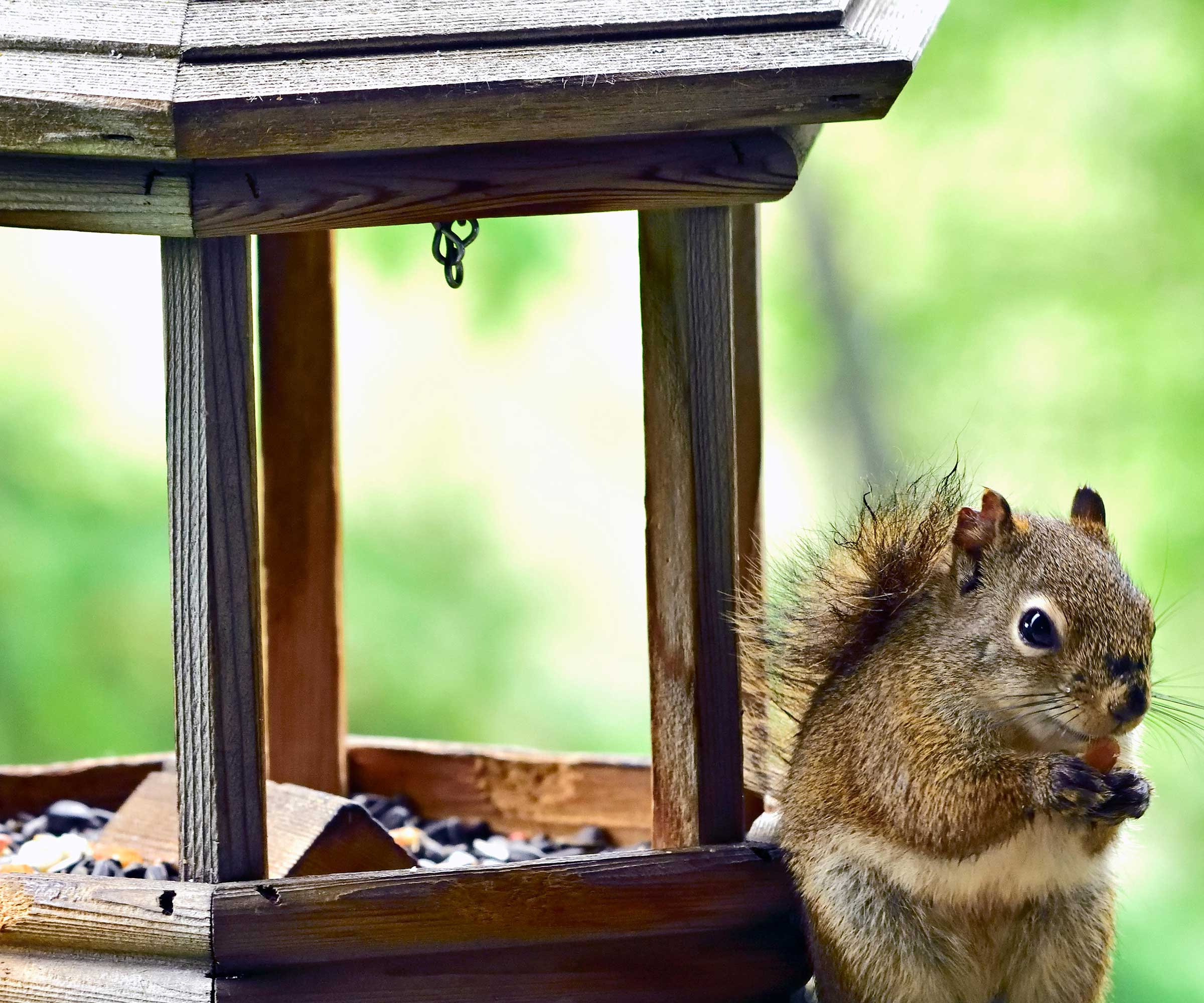
Position your bird feeder out of the reach of squirrels
1. Consider the position of your bird feeder
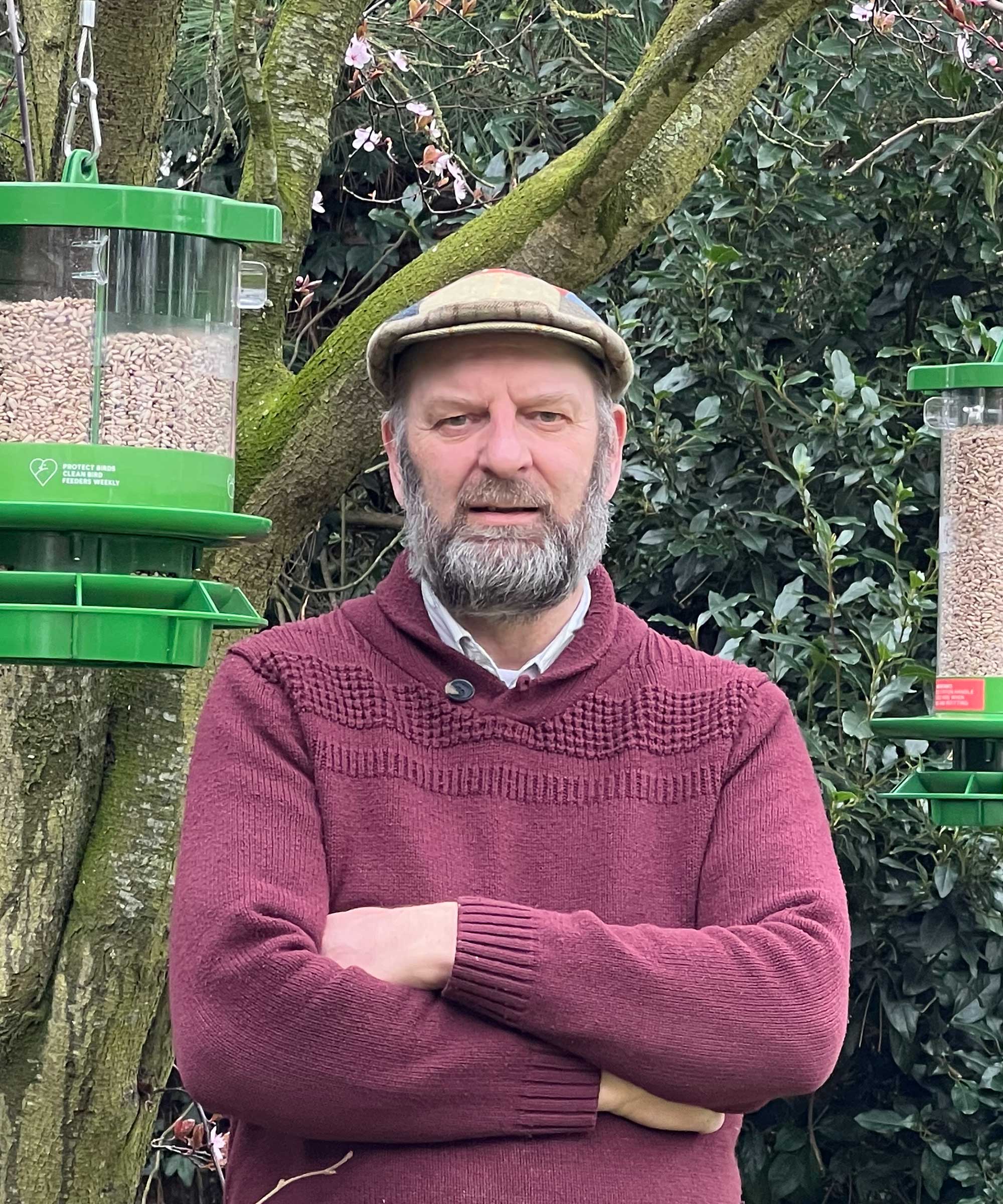
Dick Woods is an engineer by trade, with over 40 years of experience in product design and manufacture. Finches Friend was founded in 2016, after he witnessed a shocking decline of finches in his own garden in the UK. Dick identified through research that Trichomonosis was the cause and set about creating a solution in the form of innovative feeders which overcome the key problems surrounding feeding garden birds.
Dick Woods of Finches Friend says to keep your feeders high up in your wildlife garden. This will reduce the chances of the squirrels getting access.
Squirrels are also good climbers, though, so keep feeders away from fences, tree trunks, and walls, too, he says.
Design expertise in your inbox – from inspiring decorating ideas and beautiful celebrity homes to practical gardening advice and shopping round-ups.
'Avoid open, tray-based feeders at all costs,' Dick adds. 'They not only expose the feed and enable easier access, but they also pose a significantly higher risk for disease transmission by allowing feet to mix with the feed. When choosing a feeder, stick to the much safer perch feeders which will help deter pests and also reduce the risk of diseases such as Trchonomosis which is killing garden birds in their droves.'
2. Add a baffle to your feeder
'Add a squirrel baffle above a hanging feeder or before a feeder on a pole,' says Dick. This, he explains, is a wobbly piece of metal that blocks access by preventing squirrels from gripping the surface.
They are affordable and readily available – this powder-coated steel one, for instance, can be found on Amazon for less than $20.
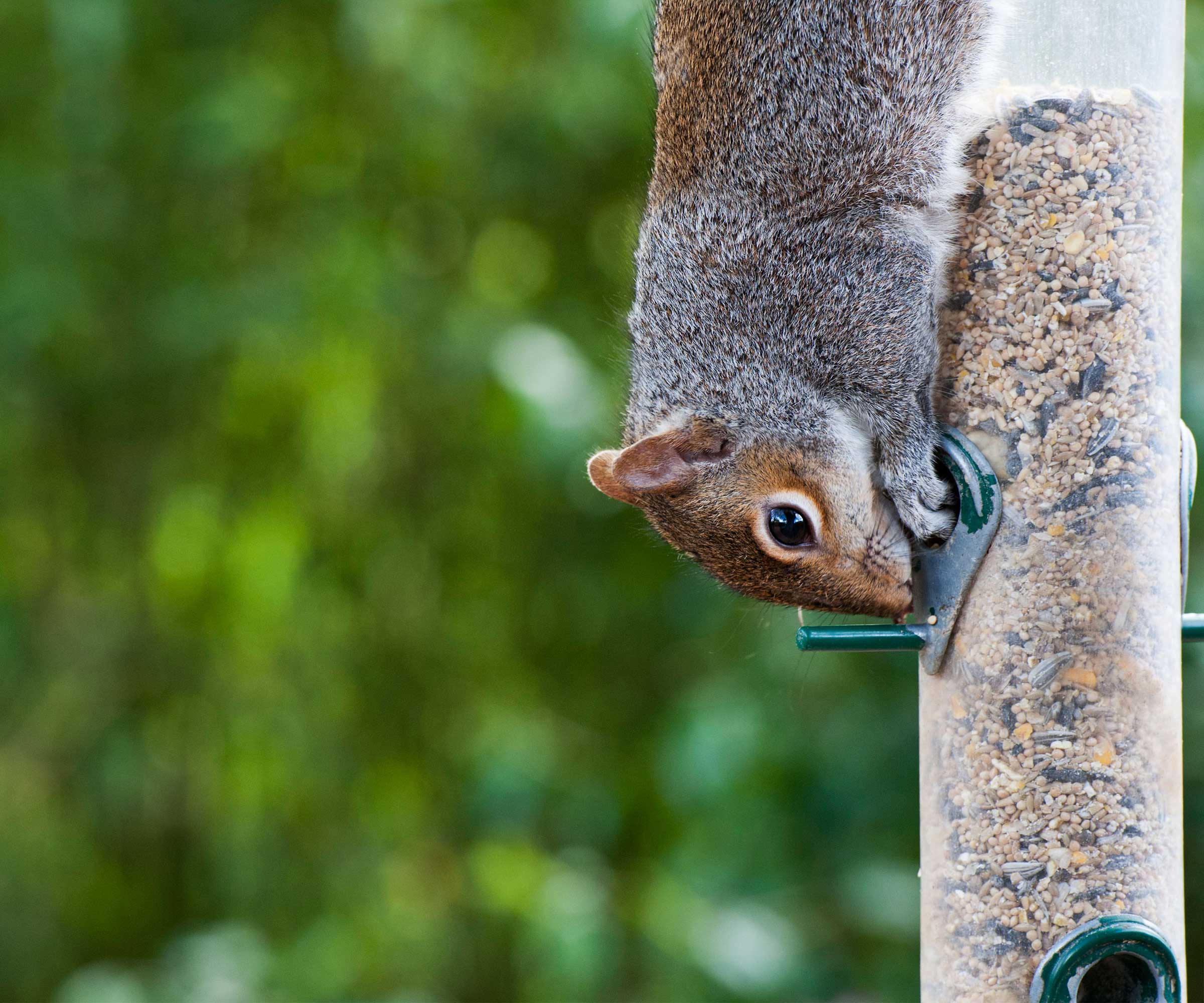
Look for feeders that block squirrels from accessing the seed
3. Opt for squirrel-proof bird feeders
'Invest in a feeder specifically designed to keep squirrels out, such as one with a weight-activated barrier that closes the feeding ports when a squirrel lands on it,' recommends Gulshan.
'These types of feeders can be highly effective, but it's important to choose one that is well-made and durable to ensure it lasts.'
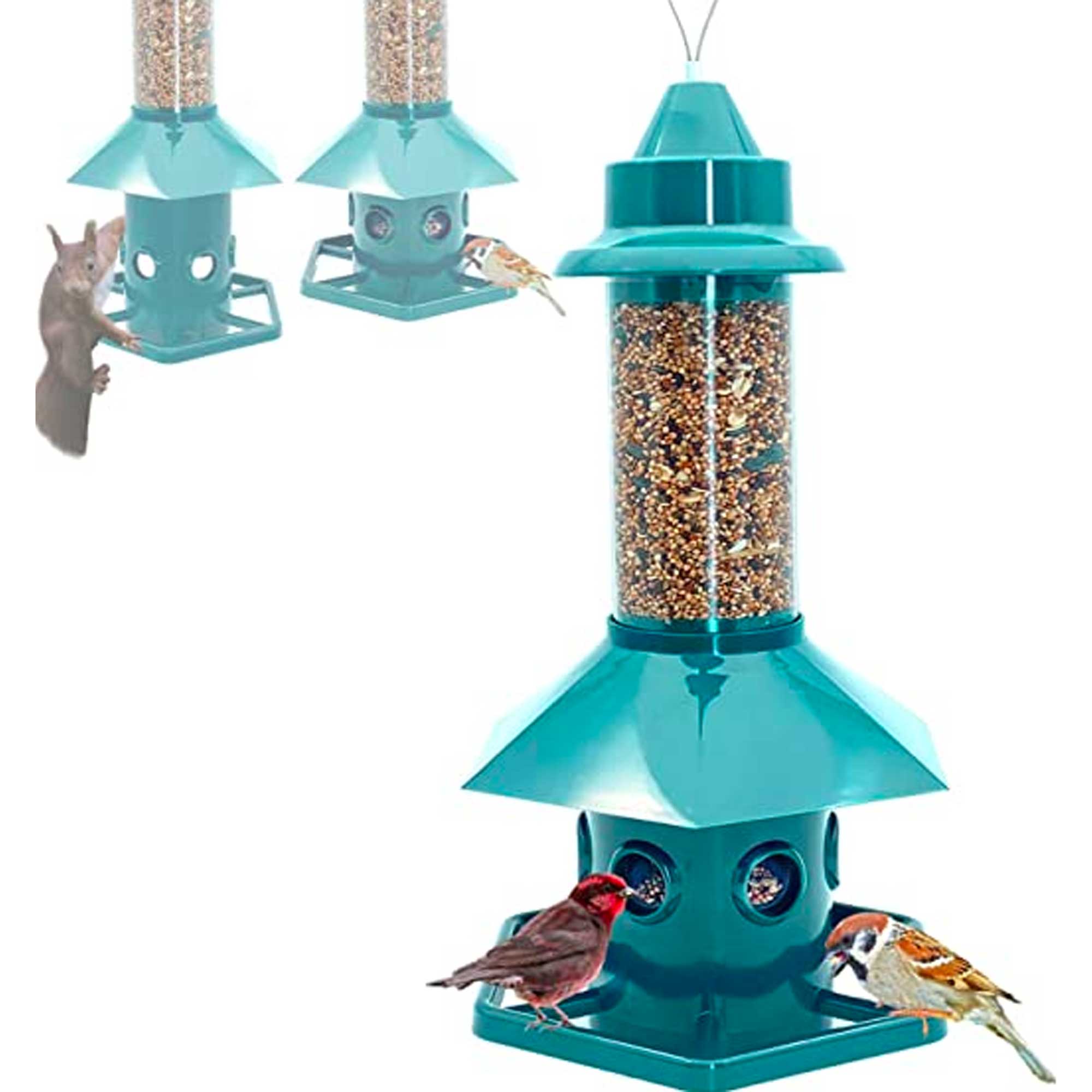
This clever and affordable design differentiates squirrels from small garden birds by weight – and when it detects a squirrel, the feeder ports automatically close. What's more, it's waterproof and easy to refill.
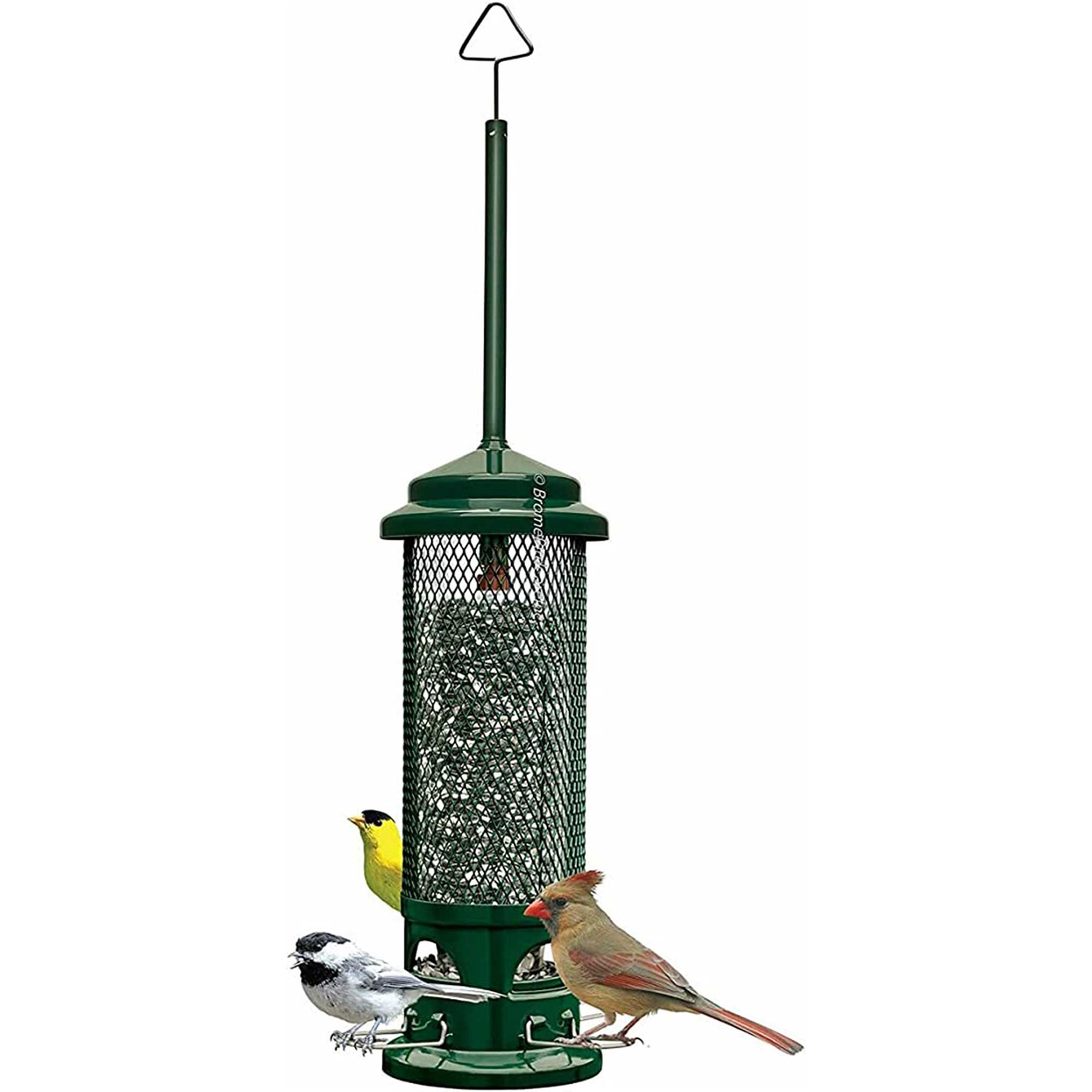
Recommended for use with black oil sunflower and/or safflower seeds, this feeder is another weight-activated design and features chew-proof materials. The food stays ventilated which helps it to stay fresher for longer.
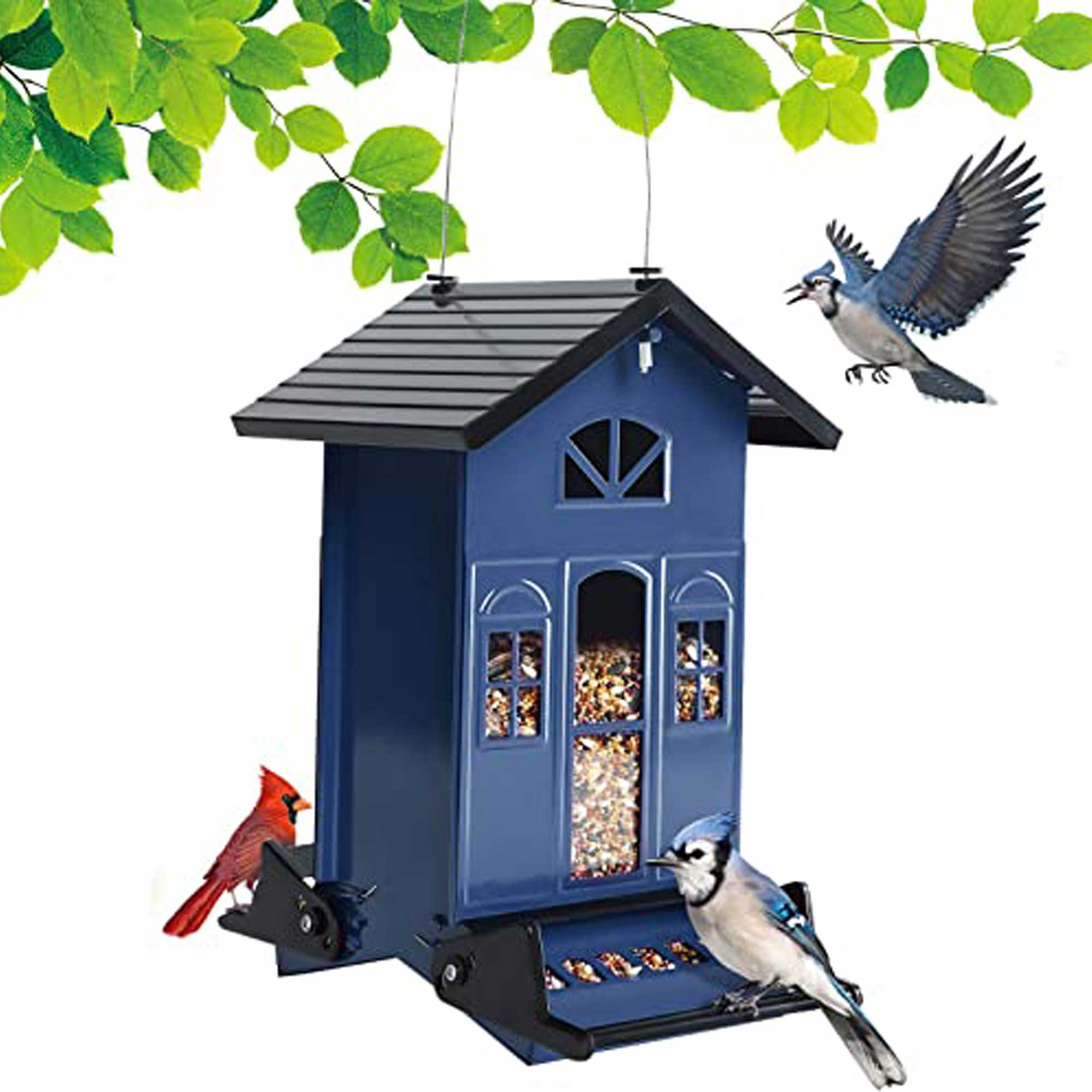
An adorable design with weight-activated perches, allowing only birds to feast on the seed. It's constructed from durable metal, and has a capacity of up to 5lbs of black-oil sunflower seed, mixed seed, hulled sunflower seed, or safflower seed.
4. Keep it clean
Dick and Gulshan both recommend keeping the area around your bird feeder clean.
'Squirrels will often raid a feeder if they find spilled seed or hulls on the ground,' Gulshan says. 'Keep the area around the feeder clean and free of debris to discourage them from investigating.'
Clearing up dropped bird food will discourage other vermin, adds Dick, and reduces the risk of disease transmission. So, it's worth doing if you're trying to get rid of rats or mice in your yard.
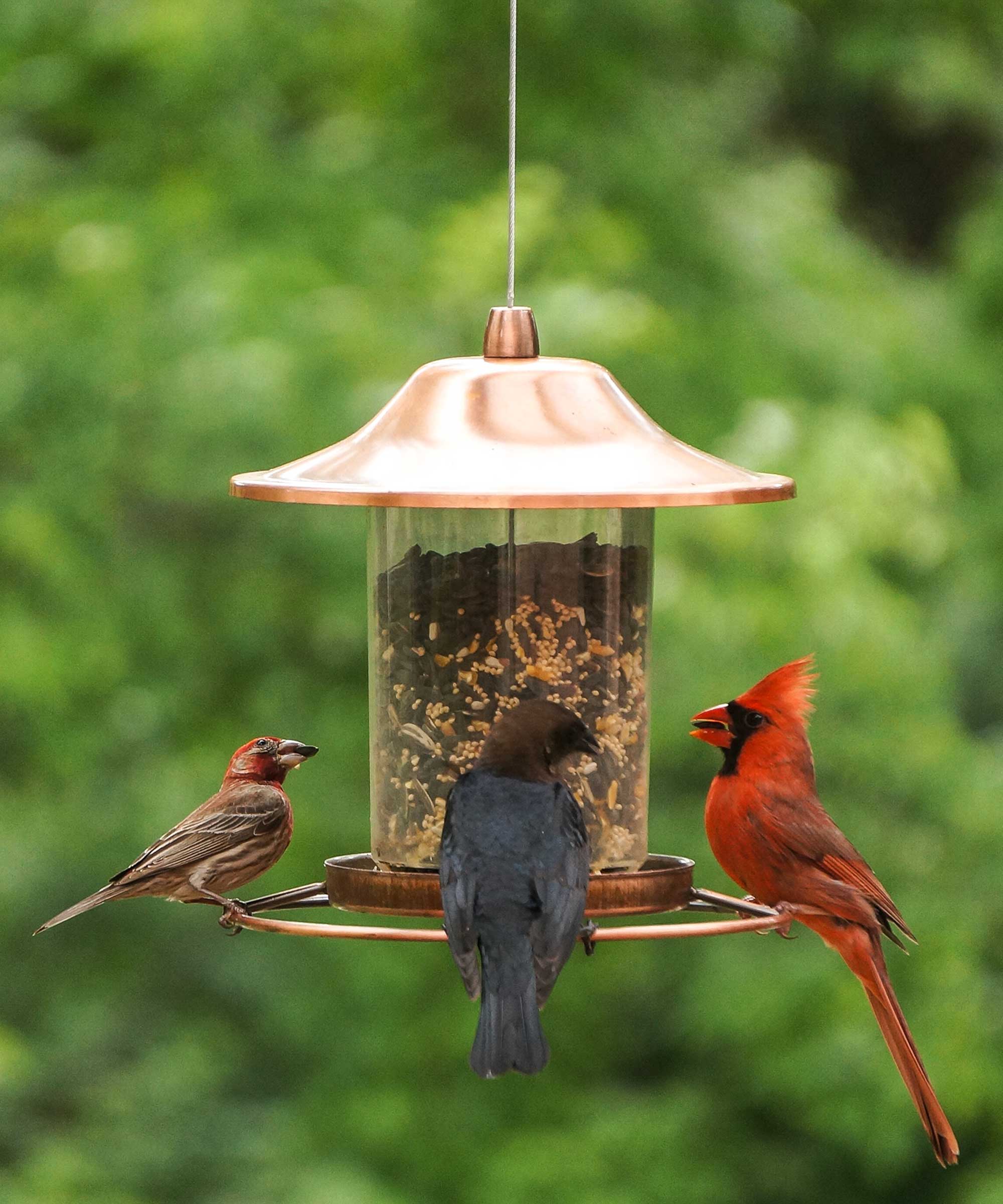
Help your garden birds to feast in peace
5. Deter squirrels with spice
Multiple experts recommend sprinkling a little cayenne pepper onto your bird food mix to keep squirrels away from bird feeders.
'Birds have a hard time tasting heat, so they don't mind the spice,' says Zack DeAngelis, the CEO and Founder of Pest Pointers. 'However, squirrels will generally steer clear of cayenne pepper and any similar spice. You'll want to make sure that all the birdseed is evenly coated with cayenne pepper. Just make sure to reapply after it rains.'
Alternatively, you can buy a pre-made mix, such as Wild Delight Sizzle N' Heat Bird Food from Amazon. 'Capsaicin is the compound that makes chili peppers hot. Some birdseed manufacturers add capsaicin to the seeds to make them unpalatable to squirrels, but you can also buy capsaicin sprays to add to your birdseed,' says Gulshan.
Hot pepper can help to deter other pests, too, including raccoons, who apparently hate the smell.
Alternatively, you can use bird seeds that aren't a preference for squirrels but that many birds enjoy, suggests Debbie Sykes, the Director of Nashville Wildlife Conservation. Her examples include safflower seeds, nyjer seeds and millet.
Just don't use a noise squirrel repellent to keep these critters away – Debbies explains that these cause a lot of anxiety in animals other than squirrels, including domestic pets.

Holly started writing about gardening five years ago, and she is a regular contributor to Homes & Gardens. She has also written many gardening features for Woman & Home and Real Homes, too. She has previous experience as a professional gardener, where she helped to plant and maintain private gardens. Holly has also looked after allotment plots over the years and loves to grow her own flowers and veggies from seed. In her spare time, she enjoys visiting local gardens, botanical drawing, and tending to her ever-growing collection of houseplants.